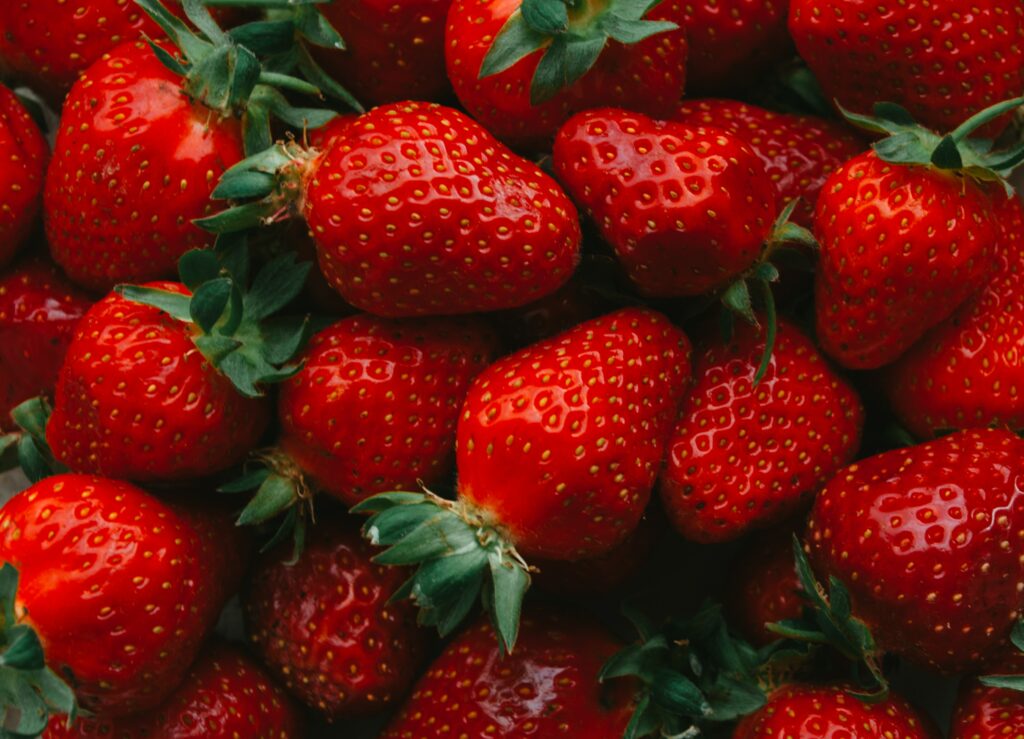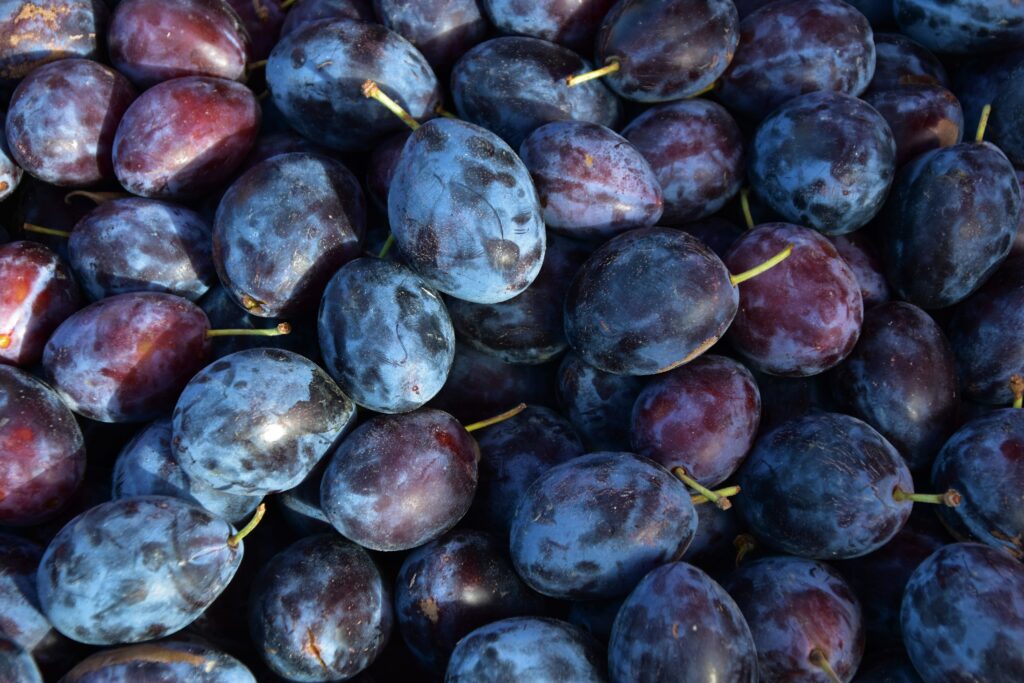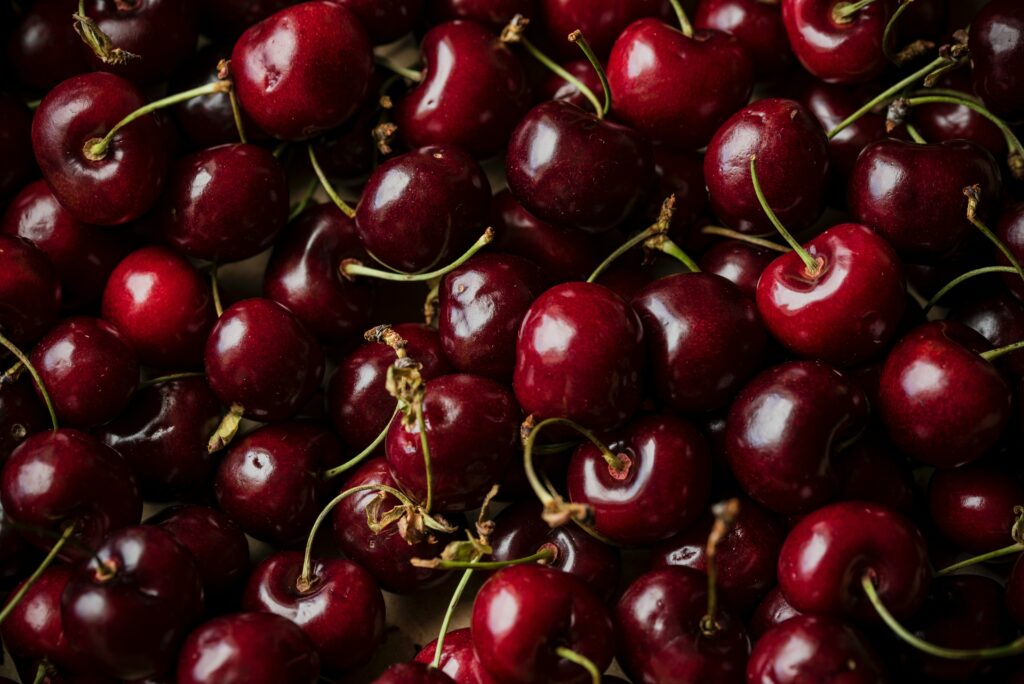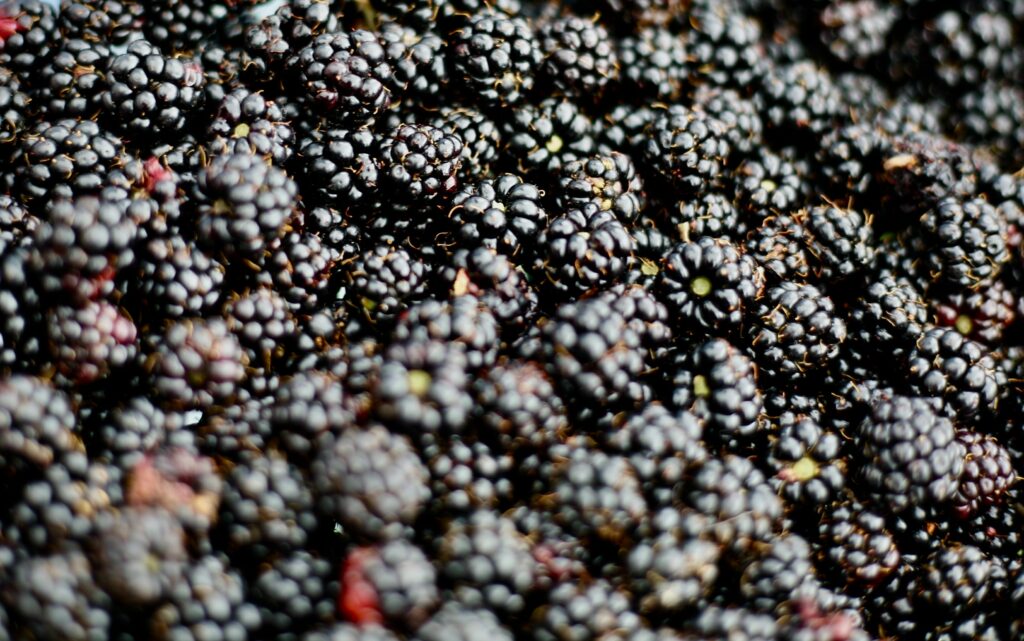It’s no surprise that apples, oranges, and bananas rank at the top of the list for America’s most-consumed fruits. They’re delicious. But the thing is, fruit—like carbs, in general—can spike blood sugar. While that doesn’t mean you should strip them from your diet altogether, it’s helpful to understand how the body metabolizes fruit. Rest assured: fruit is an integral part of a nourishing, well-rounded diet. When you’re looking for an antioxidant-packed breakfast, delicious snack, or energizing lunch, look no further than your kitchen’s fruit stash. Below are the best fruits to manage blood sugar.

Is Fruit Healthy?
Some of you might be thinking, of course fruit is healthy! But others might look at a banana and only see what diet culture sees: sugar and carbs. Fearing fruit is an example of how diet messaging impacts our ability to make perfectly nutritious and wholesome choices for our bodies. The truth is, fruit is healthy—no matter how diet culture tries to spin it. Mother Nature knows what she’s doing. What comes from our natural world is here to help, sustain, and satiate us. This includes juicy grapes, ripe watermelon, and sweet peaches!

How is fruit metabolized?
As we begin to understand blood sugar’s impact on our bodies, it’s important to recognize how fruit is metabolized. When we eat fruit, we’re consuming a wide variety of nutrients: fiber, antioxidants, carbohydrates. We’re also ingesting natural sugars. Fruit contains two types of sugar: fructose and glucose. The proportions of each vary, but most fruits are about half glucose and half fructose. Most fruits have 5-6 grams of fructose, which is a small amount. In excess, fructose can be toxic to the liver, but I’m talking about large, substantial quantities of fructose. When you eat 3-6 grams of fructose at a time, the intestines will actually neutralize it and the fructose never makes its way to the liver. To put that into context, one medium orange has roughly six grams of fructose.

Fruit and Fatty Liver Disease
When you’re sucked into the chronic dieting vortex, a food as nourishing as a pectin-packed apples can be overshadowed by its sugar content. While studies suggest that high fructose intake may increase the risk of non-alcoholic fatty liver disease, it’s important to consider which type of fructose is being tested—naturally-occurring fructose vs. processed fructose. When it comes to weight gain, diabetes, and fatty liver disease, the bigger culprits are high-fructose corn syrup and table sugar. Fruit isn’t the enemy. It’s only when fruit is consumed in large quantities—without anything to slow blood sugar (like protein and healthy fats)—that the liver receives a cascade of fructose.
How Much fruit can you eat in a day?
Experts agree that if you’re eating 1-2 fruits at a time (serving size = the size of a tennis ball), your liver will get very little—if any—fructose. In essence, the fructose gets partially blocked by the intestines. Another component that changes the way we metabolize fruit? Fiber. Fiber in fruit slows the sugar’s absorption. It helps keep hunger at bay and can support hormone balance. Unlike sodas, often with at least 25 grams of fructose, natural fruit contains fiber to keep blood sugar in check. Furthermore, fruit’s vitamin C content can also help neutralize the effects of fructose. Flavanols can help counter it, too. The best fruits to manage blood sugar are rich in fiber, vitamin C, and flavanols.
Keep in mind that everyone metabolizes fruit differently. Your body may prefer less (or more!) fruit on a daily basis. Wearing a CGM will help you determine this.

10 Best Fruits to manage blood sugar
These fruits are relatively higher in fiber and are universally known as diabetic-friendly fruits. Below is a list of the top 10 fruits to consume when trying to lower your blood sugar. If you want to know how your body’s blood sugar reacts to these fruits, consider wearing a continuous glucose monitor!
Raspberries
Half cup of raspberries (60 grams) contains approximately three grams carbs. Raspberries have a mineral called manganese, which is necessary for healthy bones and skin. It also helps regulate blood sugar.
Blackberries
Half a cup of blackberries (70 grams) contains approximately four grams carbs. As with all berries, blackberries deliver a variety of health benefits: Antioxidants, vitamins, and minerals. They’re anti-inflammatory and have anti-microbial properties.
Strawberries
Eight medium-sized strawberries (100 grams) contains approximately six grams carbs. Strawberries are known to increase HDL (good) cholesterol, lower blood pressure, and guard against cancer. Packed with vitamins, fiber, and particularly high levels of antioxidants known as polyphenols, strawberries are a sodium-free, fat-free, cholesterol-free, and low-calorie food.
Plums
One medium-sized plum (65 grams) contains approximately seven grams carbs. Plums are packed with nutrients to lower inflammation, aid with constipation, reduce blood sugar, and more.
Kiwis
One medium-sized kiwi (70 grams), contains approximately eight grams carbs. Kiwis are high in vitamin C and dietary fiber. This tart fruit can support heart health, digestive health, and immunity.
Cherries
Half a cup of cherries (75 grams) contains approximately eight grams carbs. Cherries are low in calories and chock full of fiber, vitamins, minerals, nutrients, and other good-for-you ingredients, like choline and antioxidants. You’ll get vitamins C, A, and K with each long-stemmed fruit.
Blueberries
Half a cup of blueberries (75 grams) contains approximately nine grams carbs. Along with other notable health benefits, blueberries are rich in vitamin K, which plays an important role in promoting heart health and bone health. They’re also a delicious fruit to help balance blood sugar.
Clementines
One medium-sized clementine (75 grams) contains approximately nine grams carbs. Clementines are rich in antioxidants like vitamin C, which can help improve your skin’s health and appearance. They can also help boost your immune system.
Cantaloupe
One cup cantaloupe (160 grams) contains approximately 11 grams of carbs. Very hydrating, cantaloupe is low in carbohydrates, filled with electrolytes, and has anti-inflammatory properties.
Peaches
One medium-sized peach (150 grams) contains 13 grams carbs. A member of the stone fruit family, peaches are great for digestion, can boost your immune system, and are rich in beta carotene and vitamin C to support healthy skin.
Images courtesy of Unsplash.
This article is for informational purposes only. It is not, nor is it intended to be, a substitute for professional medical advice, diagnosis, or treatment and we recommend that you always consult with your healthcare provider.



Leave a Reply